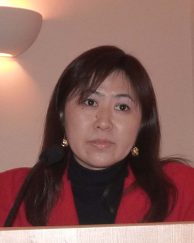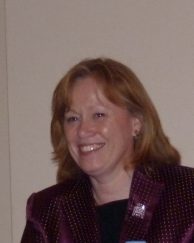 Seminar Series 2011
Seminar Series 2011Thursday 24 November 2011
6:00pm – 7:45pm
Uncertain Futures: Charities and the State in the UK and Japan
Drinks reception from 8:45pm
Daiwa Foundation Japan House
Organised by the Daiwa Anglo-Japanese Foundation
The Daiwa Anglo-Japanese Foundation’s 2011 seminar series Uncertain Futures: Charities and the State in the UK and Japan has explored the challenges for public policy in the UK and Japan arising from fiscal deficits and spending cuts. Individual seminars have focused upon such topics as social security, work and pensions, education and healthcare provision, climate and energy policy, and support for the arts. In this final seminar of the series Akiko Kamei, a Japanese politician of the People’s New Party, and Sir Stephen Bubb, Chief Executive of the Association of Chief Executives of Voluntary Organisations (ACEVO), considered what the State can and can’t provide and the role of the charity sector in uncertain times. The concluding discussion, involving speakers and audience members who contributed to the series throughout the year, generated a lively and interesting debate on this important theme.
Akiko Kamei, the first speaker, began by talking about the Democratic Party of Japan (DPJ)’s concept of ‘New Public’, which was first introduced in its manifesto published in 2009. ‘New Public’ involves encouraging citizens and Nonprofit Organisations (NPOs) to support society together with the government by participating in such areas as education, medical service, welfare and city planning.
Owing to the fact that, under the current law, it had been too difficult for most NPOs to receive government-certified status, a revised law was proposed. The law passed the Diet in June 2011. First, a new style public support test (PST) was introduced, which changed the way in which NPOs are evaluated. Next, a trial period of provisional approval to empower new NPOs was introduced. Then, more power was transferred from the Cabinet Office to local governments; it is the local governments who certify NPOs, Kamei explained.
Kamei said that the revised NPO Law and tax reform are intended to work as a set to empower NPOs. To promote fundraising, tax benefits were given to both donors and NPOs. Under the new system, most donors will receive more tax deductions. This should encourage everyone, even ordinary citizens, to make donations, and will raise awareness of NPOs.
Kamei wants to allocate more ‘untied’ budgets to local governments, which will allow local governments to decide where to spend and how to spend according to their priorities. She is also hoping to reduce duplications by coordinating similar projects across ministries and encouraging the sharing of information.
The Personal Support Service (similar to personal advisors in the UK) aims to meet individual needs and coordinate public services across ministries. For example, when a social worker finds a homeless person on the street in need of a room, a doctor and a job, the social worker accompanies this person from one government section to another to complete all the necessary procedures. In this model, governments and NPOs work in alliance.
Kamei’s final question was, “How can we empower charities without extra budgets?”, and she concluded, “This is a difficult challenge and I don’t have the answer.” However, she suggested that it is important to involve retiring baby-boomers and young people. She is also interested in introducing the British concept of the ‘gap year’ to Japan in order to encourage young people to become involved with NPOs. Kamei finished by saying that building the Big Society in the UK and creating the New Public in Japan are similar concepts, and so we should be able to learn from each other.
Demonstrating that charity in the UK has a huge and important history, the second speaker, Sir Stephen Bubb, began at the beginning, in AD597, with the founding of the first charity that still exists in the UK – The King’s School, Canterbury. The King’s School was founded to support the education of the poor. Some members of ACEVO are running organisations that have been around for hundreds, and in some cases thousands, of years and they have played an important role in public life in the UK.
According to Bubb, ‘charity’ in the UK has a dual role: to provide essential services and support, and to campaign and advocate on behalf of communities. These two roles are incredibly important and are often intertwined, Bubb noted.
Beginning with the role to provide services to people, Bubb explained that, for approximately a thousand years in the UK, charitable endeavour was the public service. Hospitals, schools and support for the homeless were all provided through charities and were largely supported by rich benefactors and churches. It wasn’t until 1601 that charities were regulated. Elizabeth I introduced a law which encouraged giving for charitable uses. All these charitable uses were what we now know as ‘public service’.
Bubb went on to explain that the provision of public service charities broke down in the late 19th century against the demands of the industrial revolution. It became very clear after the Second World War that we needed a Welfare State where the State paid for essential services for people in their youth, in their childhood, and old age. As a great achievement of the post-war Labour government, a Welfare State was introduced. It was introduced on the principle that the state would pay for these services but also that the state would provide the services through its own employees and centralise control.
In the last two decades, Bubb said, we have begun to question not the premise that the state should provide public services, but the idea that they need to be provided through state employees. In the last Labour government under Tony Blair there was an argument about the need for public service reform. He famously said, “What matters is what works.” In other words, the service that is provided to people should be of high quality, and paid for by the State, but it doesn’t necessarily have to be provided by State employees.
There has been a huge expansion of charity, of social enterprise, and of community groups providing more services in health and education, but it has been controversial. Bubb was asked to conduct a review of the choice and competition in the health service as part of the government health reforms. In terms of health service, Bubb concluded that we need more choice, and that choice can often be provided by charities and third sector organisations.
Bubb illustrated his point with the example of Cicely Saunders, who was a nurse in London after the war. When caring for cancer patients she saw that the hospital and the health service provided excellent clinical care, but what these people actually needed at the end of their life was something else. She founded the first hospice, St Christopher’s Hospice, and now that model of providing care through a combination of state support and charity support is very well accepted and should be extended through charity provision.
Returning to the role of campaigning and advocacy, Bubb gave an example of a priest called Bruce Kenrick, who lived in Notting Hill in the 1960s. After finding his neighbour cast out of her house because she couldn’t afford to pay her rent, Kenrick took her in and helped her. He realised the need for affordable housing for poor people, and founded an organisation that became the Notting Hill Housing Trust in 1963. Kenrick saw that he could help a number of people through that very practical support, but what he really needed was to campaign for the homeless, and this led to the founding of the charity Shelter. He ran a campaign that got huge support in the UK and that brought about a change in legislation on homelessness.
There are around 180,000 registered charities in UK but there are many more social enterprises and unincorporated voluntary and community organisations. There are at least half a million non-public sector, non-private sector organisations. It is estimated there are well over one million people working in that sector and at least six million volunteers. It makes a huge contribution, not just to public life but to the economy.
About five years ago, Bubb met with a group of leaders from the NPO sector in Japan. That led to the founding of JACEVO – the Japanese ACEVO – after Japanese NPO leaders realised that there was a model there which didn’t need to be reinvented. ACEVO keeps in contact with JACEVO and provides support.
For Bubb, the challenges are the same in the UK and Japan. First of all, he mentioned the fiscal challenges. The demand for public services and what the State does is growing and it can’t be met. Therefore, how we use the power of our sector and volunteers is incredibly important. Another challenge is a growing and aging population, and its demands on the medical service. Further challenges that both countries face are those of climate change and sustainability. However, these challenges are also huge opportunities for the sector in the UK and in Japan, said Bubb. “I think these are exciting times for a growing sector. Japan has room to grow.”
“The most important point of our role is how it underpins a thriving democracy”, Bubb believes, and finished with a quote from Lord Nathan, “An active campaigning and questioning sector is one of the guarantors of democracy.” What we do is extraordinarily important, Bubb concluded, and deserves huge support.
The questions and answers following the talks were varied and covered themes such as how to find the balance between what the government does and what charities do, the role of advocacy, how to deal with ongoing needs after having dealt with an initial problem or emergency, the recognition of informal community volunteering, whether all campaigning is political, and what can be done by charities to try to get more people involved.
The chair, Baroness Smith of Basildon, concluded by thanking the speakers for their detailed contributions to the final seminar of the 2011 series.

This event was supported by Japan Airlines.
About the contributors

Akiko Kamei
Akiko Kamei is a Japanese politician of the People’s New Party (government coalition party) and a member of the House of Councillors in the Diet. A native of Tokyo and graduate of Gakushuin University and Carleton University in Canada, she was elected for the first time in 2007 in the constituency of Shimane Prefecture. She has been Chairman of the Policy Research Council of the party since September 2010. She is a senior member of the Diet Members Alliance for NPO Law. Her father, also of the People’s New Party – he is the founder Secretary General – is a veteran member of the House of Representatives. Her great grandfather was Tomomi Iwakura, a statesman in the Meiji Era, who played an important role due to the influence and trust he had with Emperor Meiji.

Sir Stephen Bubb
Sir Stephen Bubb is Chief Executive of the Association of Chief Executives of Voluntary Organisations (ACEVO) – a dynamic and high profile UK body – where his work on leadership, sector funding and public service reform has radically shifted attitudes and policies. In 2007 he became Secretary General of Euclid Network, the European body for Third Sector leaders. He is the Chair of the Social Investment Business, the largest social investor in the UK. He is a member of The Commonwealth Foundation’s Civil Society Committee, a Director of the Big Society Trust and a Board Member of the Transition Institute. In 2011 Stephen was asked by the Prime Minister to conduct a review into choice and competition in the NHS. He has been in major national roles in the TGWU, NUT and the AMA (Association of Metropolitan Authorities) and was Founding Personnel Director of the National Lottery Charities Board. He received a knighthood in the New Year’s Honours, 2011.

The Rt Hon Baroness (Angela) Smith of Basildon (chair)
The Rt Hon Baroness (Angela) Smith of Basildon is the Labour Shadow Minister in the House of Lords for the Departments of Energy and Climate Change and Northern Ireland. Previously the Member of Parliament for Basildon in Essex (from 1997-2010), she held ministerial office in Northern Ireland, the Department for Communities and Local Government and the Cabinet Office as well as two years at 10 Downing Street as Parliamentary Private Secretary to Prime Minister Gordon Brown. At the Cabinet Office her responsibilities included the Third Sector, including charities and Social Enterprise.